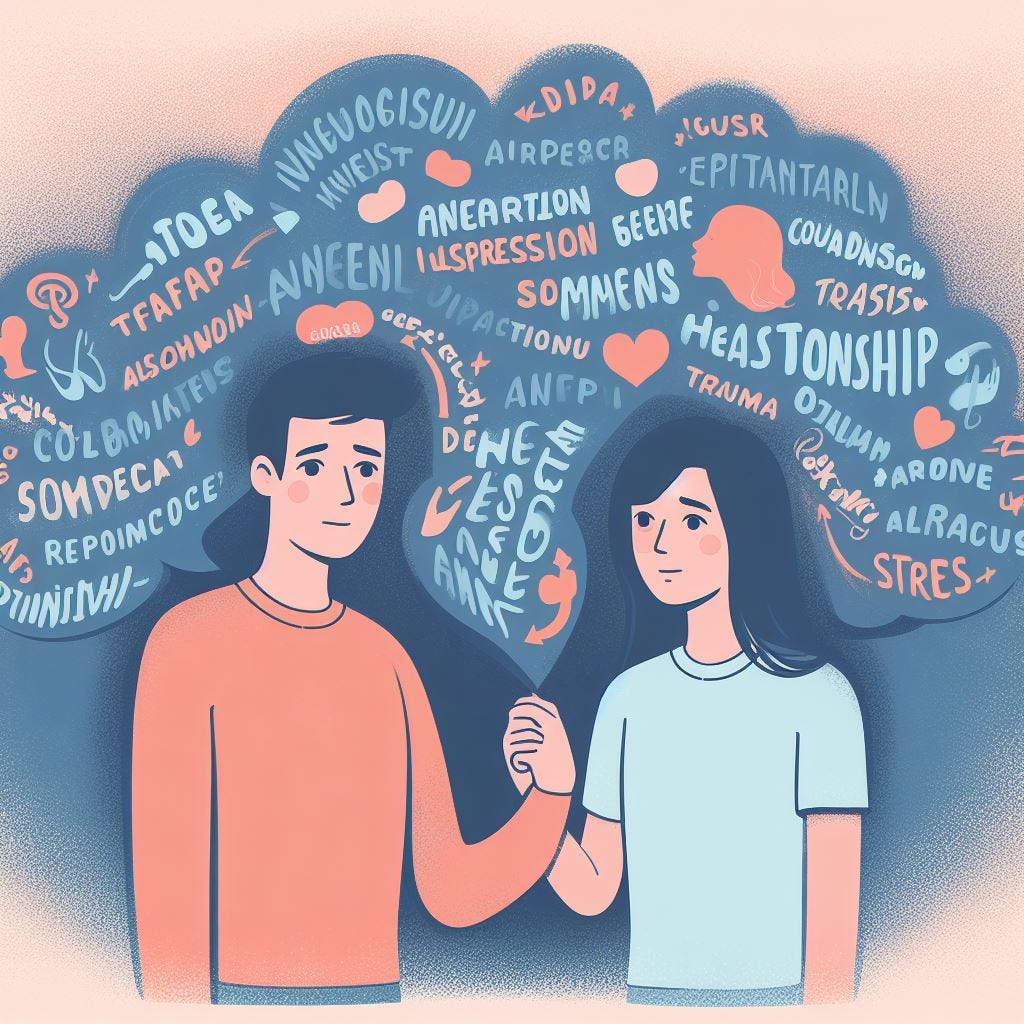
Relationships are integral to our lives, offering companionship, support, and love. However, when a relationship starts to negatively impact your mental health, it’s crucial to recognize the signs and take appropriate action. This article delves into ten alarming indicators that your relationship may be detrimental to your mental well-being and provides guidance on reclaiming your happiness.
1. Constant Anxiety and Stress
Feeling perpetually anxious or stressed around your partner is a significant red flag. This constant state of unease can lead to chronic stress, affecting both mental and physical health.
2. Emotional Exhaustion
If interactions with your partner leave you feeling drained rather than uplifted, it may indicate emotional exhaustion. Healthy relationships should provide energy and support, not deplete your emotional reserves.
3. Isolation from Friends and Family
A toxic relationship often leads to isolation, where one partner distances themselves from their support network. This separation can exacerbate feelings of loneliness and depression.
4. Lack of Personal Growth
Healthy relationships encourage personal development. If you feel stagnant or that your growth is being stifled, it could be a sign that the relationship is negatively impacting your mental health.
5. Walking on Eggshells
Constantly fearing that you’ll upset your partner, leading to walking on eggshells, indicates an unhealthy dynamic. This environment can heighten anxiety and diminish self-esteem.
6. Decreased Self-Esteem
If your relationship involves constant criticism or belittlement, it can erode your self-worth over time, leading to feelings of inadequacy.
7. Feeling Insecure or Jealous
Persistent feelings of insecurity or jealousy, especially if unfounded, can indicate deeper issues within the relationship affecting your mental well-being.
8. Physical Symptoms
Mental distress often manifests physically. Unexplained headaches, fatigue, or changes in appetite can be linked to relationship-induced stress.
9. Loss of Interest in Activities
Losing interest in hobbies or activities you once enjoyed may signal that your relationship is impacting your overall happiness and mental health.
10. Contemplating Ending the Relationship Frequently
Constantly thinking about ending the relationship suggests deep-seated dissatisfaction and its toll on your mental health.
Steps to Reclaim Your Well-being
- Open Communication: Discuss your feelings with your partner to address issues collaboratively.
- Seek Professional Help: Consulting a therapist can provide objective insights and coping strategies.
- Reconnect with Support Networks: Engage with friends and family to rebuild your support system.
- Prioritize Self-Care: Engage in activities that promote your mental and physical well-being.
Conclusion
Recognizing the signs that your relationship is affecting your mental health is the first step toward healing. By acknowledging these indicators and taking proactive measures, you can reclaim your well-being and foster healthier relationships in the future.



